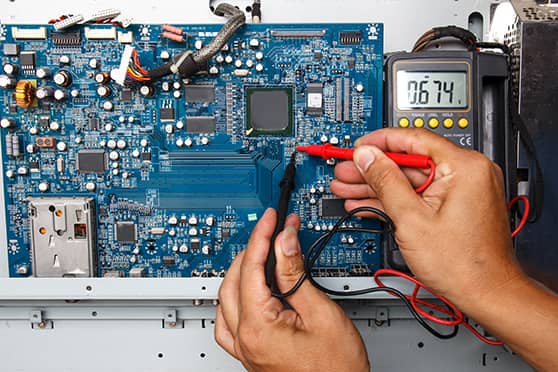Summary
Cracking JEE Mains, JEE Advanced, and state joint exams is the best way to pursue Instrumentation Engineering
IIT Kharagpur and Jadavpur University offer both bachelor’s and master’s courses
Instrumentation Engineering is all about integrating sensors into recorders, transmitters, displays and control systems. It focuses on the theory and operation of measuring instruments used in the design and setup of automated systems in different domains. You can pursue this discipline if you want to learn how to calibrate gadgets and test and maintain them for future use.
Scope of Instrumentation Engineering:
Instrumentation Engineering is important for the production of the measurement tools employed in various sectors. Graduates of this Engineering discipline investigate the principles and functions of these instruments. They work in industries to increase the manufacturing unit’s productivity, dependability, safety, optimisation and stability.
Studying Instrumentation Engineering:
- You need to clear your Class XII board exams or an equivalent exam with Physics, Chemistry, Maths as compulsory subjects. You need at least 75% marks for admission to IITs, NITs and GFTIs.
- You need to clear JEE Mains, conducted by the National Testing Agency (NTA), for admission to NITs, CFTIs and other engineering institutes.
- You need to clear JEE Advanced to get into IITs and IIT (ISM) Dhanbad. To be eligible for JEE Advanced, you need to be among the top 2,50,000 successful candidates (across all categories) in the BE/BTech paper of JEE Mains.
- You can also enrol in an Instrumentation Engineering course by clearing any of the state joint entrance exams.
- For a master’s degree in Instrumentation Engineering, you need to clear GATE (Graduate Aptitude Test in Engineering).
Some top institutes for Instrumentation Engineering:
IIT Kharagpur, West Bengal
Course: BTech in Instrumentation Engineering.
- Duration: Four years.
- Admission: Depends on your rank in JEE Advanced.
Course: MTech in Instrumentation Engineering (Dual degree).
- Duration: Five years.
- Admission: Depends on your GATE rank.
Click here to learn more.
Jadavpur University, Kolkata, West Bengal
Course: BE in Instrumentation and Electronics Engineering.
- Duration: Four years.
- Admission: Depends on your rank in the West Bengal Joint Entrance Examination (WBJEE).
Course: ME in Instrumentation and Electronics Engineering.
- Duration: Two years.
- Admission: Depends on your GATE rank.
Click here to learn more.
NIT Tiruchirappalli, Tamilnadu
Course: BTech in Instrumentation Engineering.
- Duration: Four years.
- Admission: Depends on your rank in JEE Mains
Course: MTech in Instrumentation Engineering.
- Duration: Two years.
- Admission: Depends on your GATE rank.
Click here to learn more.
NIT Jalandhar, Punjab
Course: BTech in Control and Instrumentation Engineering.
- Duration: Four years.
- Admission: Depends on your rank in JEE Mains
Course: MTech in Control and Instrumentation Engineering.
- Duration: Two years.
- Admission: Depends on your GATE rank.
Click here to learn more.
Birla Institute of Technology and Science, multiple Locations
Course: BE Electronics and Instrumentation Engineering.
- Duration: Four years.
- Admission: Depends on your rank in BITSAT Mains.
Click here to learn more.
IIT (BHU), Uttar Pradesh
Course: MTech in Digital Techniques & Instrumentation.
- Duration: Two years.
- Admission: Depends on GATE rank.
Click here to learn more.
Studying abroad:
Instrumentation Engineering is one of the most in-demand engineering courses around the world. Here’s a list of foreign institutes that offer such courses:
- Massachusetts Institute of Technology, US
- Stanford University, US
- Harvard University, US
- University of Manchester, UK
- University of Toronto, Canada
- University of Queensland, Australia
- National University of Singapore, Singapore
Job roles with an Instrumentation Engineering degree:
-
Consultant: They examine project reports for financial soundness and cost predictions. They also advise industries on the repair, remodelling, and upkeep of existing structures. In the event of complicated constructions, these professionals cross-check the design to assure total safety.
-
Senior instrumentation engineer: They assess the alternatives for an entire device, including its cost and risk, supportability and analyses.
-
Field engineer: They are involved in the phases of project analysis, design, implementation and commissioning. These professionals examine current engineering procedures and make suggestions for improvements.
-
Instrumentation specialist: Their primary responsibilities include equipment planning and design, installation, repair and maintenance. They also provide leadership and assistance.
Last updated on 21 May 2022

